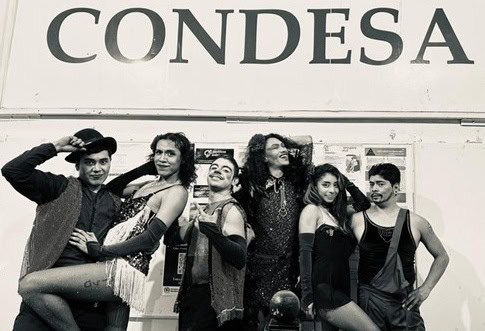By Alejandro Rodríguez Hernández
Circolo Círculo Social
Dialogue between government, civil society, academia, and youth is essential to addressing the complexities of youth rights from a perspective that recognizes their intersections and particular challenges. This space for exchange not only strengthens the social fabric but also reveals the dynamics of power and inequality that persist in our society, especially in urban contexts like Mexico City.
In Mexico, the debate on human rights has historically been an extension of political and economic rights, subordinated to the relationship between the private and public spheres. This has perpetuated a "culture of privilege" and a "culture of effort" that, while seemingly natural, "produce an ideological effect" (Martínez de la Escalera, 2020). These constructions replicate inequalities and limit the inclusion of historically marginalized sectors, such as LGBT+ youth, young women, and those in precarious economic situations.
Mexico City, as the country's political and cultural epicenter, faces unique challenges. Its public spaces reflect these tensions: they are the intersection of the rights to free expression, access to work, mental and emotional health, productivity, and innovation. In this context, it is crucial to develop public policies that transform these spaces into true places of inclusion and sustainability, fostering equitable access to opportunities and resources.
The challenge also lies in overcoming the fragmentation between actors. While academia has historically established itself as a privileged space, the government operates under inherent contradictions between welfare and effective inclusion. Civil society, for its part, reflects a wide diversity of interests, from community initiatives to those with a business focus. This panorama highlights the urgency of intersectoral dialogue that exposes underlying power relations and promotes a culture of inclusion that evolves to become unnecessary, as an ideal horizon.
Developing the key points
LGBT+ Human Rights:
The fight for LGBT+ rights in Mexico City has made significant legal progress, but still faces cultural and social challenges. We need to consolidate policies that regulate diversity and guarantee safe spaces in the public, workplace, and educational spheres, promoting respect as the basis for sustainable coexistence.
Work and employability:
Young people face barriers to accessing decent jobs, particularly in vulnerable sectors. Our approach includes developing technical and socio-emotional skills, as well as promoting sustainable social enterprises that allow young people to generate income while contributing to their communities.
Emotional and mental health:
Emotional well-being is a cornerstone of sustainable lifestyles. It is vital to include strategies in public policies that combine access to affordable psychological therapies with the promotion of cultural and sports activities that foster a sense of belonging and resilience.
Productivity and innovation:
Beyond an extractive approach, we propose a productivity approach that values social and environmental impact, promoting initiatives such as the circular economy and technologies that benefit both individuals and their environment.
Environment and public space:
Transforming public spaces into inclusive spaces requires sustainable infrastructure, such as biotechnology-powered drinking fountains, recycled roofs, and eco-friendly toilets. These elements not only improve the quality of life but also strengthen the connection between community and environment.
Sustainable lifestyles:
At Circolo, we reflect on the triad of body, consumption, and environment. We have proven that it is possible to build lifestyles that balance personal development, productivity, community life, and environmental stewardship. This involves not only taking care of your body and consuming responsible products, but also creating supportive networks that enable young people to transform their economic and social realities.
Conclusion
Dialogue between government, civil society, academia, and youth is not only relevant but urgent. It is a tool for deconstructing the ideologies of privilege and effort, and for designing sustainable public policies that address the diverse realities of youth in Mexico City. Circolo Circo Social positions itself as a key agent in driving this change, using art, community, and public space as platforms for inclusion, innovation, and comprehensive development.






